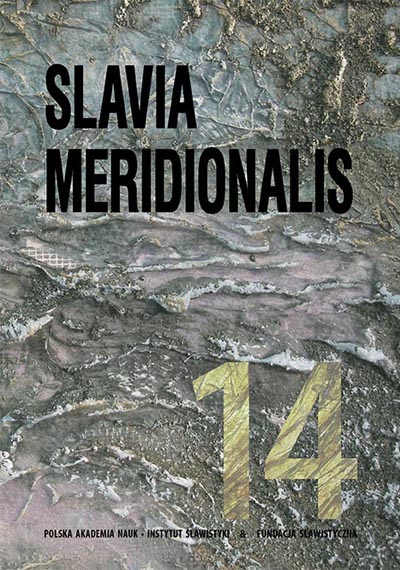„Nowa epoka” jako kategoria kompensacyjna. Metodologiczne wyzwania opisu a casus dwudziestowiecznej Macedonii
“The New Epoch” as a compensating category. Methodological challenges of description and the case of twentieth-century Macedonia
Author(s): Lech MiodyńskiSubject(s): History, Social Sciences, Sociology, Recent History (1900 till today), Transformation Period (1990 - 2010)
Published by: Instytut Slawistyki Polskiej Akademii Nauk
Keywords: Macedonia; historical breakthrough; instrumentalisation of culture; description methodology; time images
Summary/Abstract: This article depicts the functions and possible means of describing Macedonian historiosophic and cultural visions stemming from the political transformations of 1991. These are presented against the backdrop of changes in collective consciousness in the 20th century. Issues of research methodology and the identity of the new beginning idea (and its components) in four contexts (genetic, onthological, axiological and processual) are depicted. Within the first of these, attention is drawn to the problems of retrospective temporal orientation, assimilation of the past, “synchrony of history” and reflection of prototypes, a new conceptual network of reconstructed meanings, and selection of causalities. The second context relates to the deliberate-beneficent idea of time, the domination of “structural history”, the constructive application of previous – mainly romantic – historiosophic categories: a nation’s moral predestination (Hegel), crisis as a factor of change (Burckhardt), subordination of the category of history towards freedom in the succession of epochs (Fichte), breakthrough as a stopping of the process of decay (corso – ricorso – Vico), and the importance of periodisation and turning points. The third context includes the following items: the bond of descent towards a claim of newness and liberation, “correcting the lack of fulfilment” of the past, the “positive Apocalypse” of perpetual national revolution, the heroisation of everyday life, the politisation of culture and re-interpretation of tradition: antiquity (the sphere of archaeology), the Middle Ages, folklore, revolts and national renaissance; and the romanticism of sacrifice and lynching in the light of a postmodern neutralisation of heroism. The fourth context consists of socially-compensated elements themselves: a) national (with four indications), state-political (institutional), c) historical-cultural (identifying-imagological), and d) material-economic (pragmatic). The various scenarios for restoring their memory are also present in this part: cleansing in the past, establishment in the present and liberation in the future. Their image is made complete by a short presentation of heritage canonisation patterns and ethnocentric re-evaluation of methodologies in the Macedonian humanities after 1991.
Journal: Slavia Meridionalis
- Issue Year: 2014
- Issue No: 14
- Page Range: 202-231
- Page Count: 30
- Language: Polish

